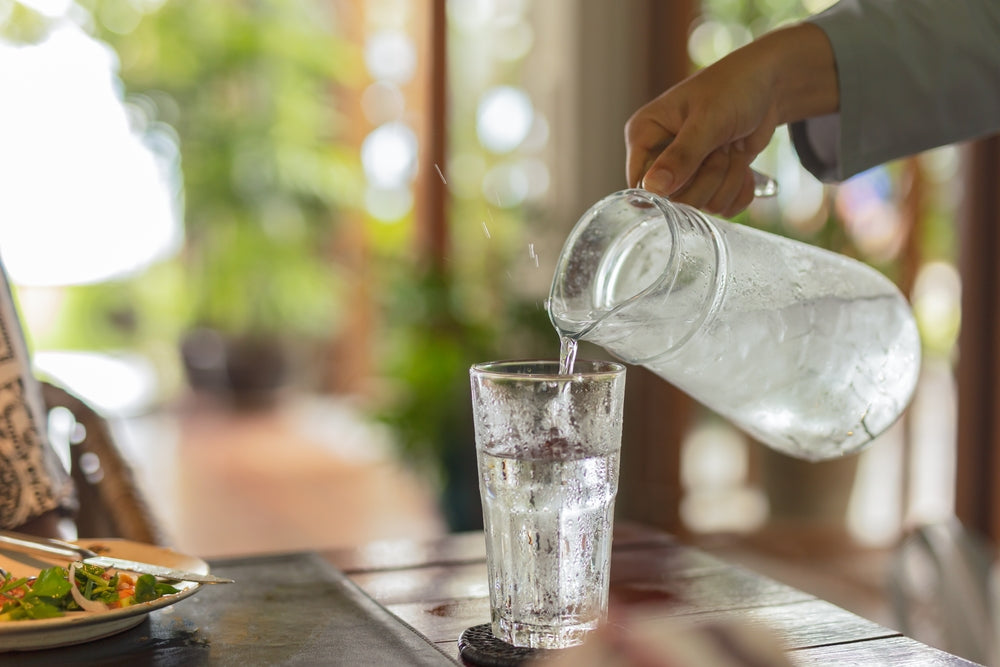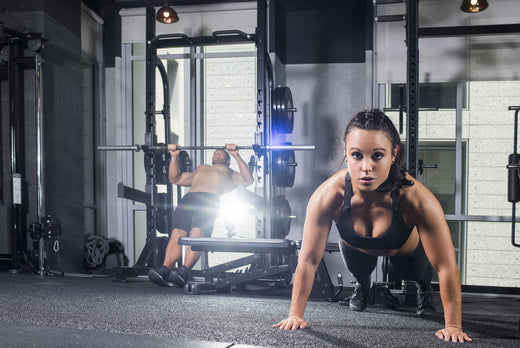Did you know that about 60% of your body is made up of water? It’s essential for nearly every process your body relies on, from keeping your temperature steady to aiding digestion and maintaining energy levels. Despite its importance, dehydration is more common than you might realize and can subtly impact both your mood and physical well-being. In this article, we’ll explore how to recognize dehydration, determine how much water you need, and understand the benefits of staying hydrated.
Signs of Dehydration
Dehydration occurs when your body loses more fluids than it takes in. This can happen for a variety of reasons, such as sweating during exercise, an illness that causes vomiting or diarrhea, or simply not drinking enough water throughout the day. Recognizing the signs of dehydration early can help prevent serious health complications.
Common Symptoms of Dehydration
Thirst
Feeling thirsty is your body’s first way of signaling that it needs more water. However, by the time you feel thirsty, you may already be slightly dehydrated.
Dry Mouth and Lips
A parched mouth or chapped lips are often one of the first noticeable signs of dehydration. This happens because your body isn’t producing enough saliva, which relies on proper hydration.
Dark Urine
The simplest way to ensure you're drinking enough water is by checking the color of your urine:
- Pale yellow: Well-hydrated.
- Dark yellow or amber: Dehydration; increase water intake.
- Clear urine: You may be drinking too much water, which can dilute essential minerals in your body.
Fatigue
When your body doesn’t have enough water, it has to work harder to perform basic functions, leaving you feeling sluggish and tired.
Dizziness or Lightheadedness
Dehydration can lower blood pressure and reduce the flow of blood and oxygen to your brain, making you feel dizzy or lightheaded.
Decreased Urination
If you notice you’re urinating less frequently than usual, it could be a sign of dehydration. Your body is trying to conserve water by reducing output.
Dry Skin
When you’re dehydrated, your skin may lose its elasticity, appear flaky, or feel unusually dry. A quick way to test this is the skin pinch test: pinch the skin on the back of your hand—if it doesn’t bounce back quickly, you may be dehydrated.
Headaches
Dehydration can cause tension headaches or migraines due to reduced fluid levels in your body, affecting blood flow and oxygen delivery to your brain.
Advanced Symptoms of Dehydration
In severe cases, dehydration can lead to:
- Confusion or Disorientation: Your brain relies heavily on water to function. Severe dehydration can impair cognitive abilities.
- Rapid Heartbeat: A lack of fluids can lower blood volume, forcing your heart to work harder to pump blood.
- Fainting or Collapse: Without enough fluids, your body’s systems can become overwhelmed, leading to fainting or even collapse.
If you experience severe symptoms, it’s important to rehydrate immediately. For mild cases, sipping water slowly or drinking an electrolyte solution can help. In more severe situations, seek medical attention right away to prevent further complications.
How Much Water Do You Need?
Your daily water needs depend on various factors, including your age, body size, activity level, climate, and overall health. While the familiar "8 glasses of water a day" guideline works as a general reference, individual requirements often vary based on the person, lifestyle, and environment.
General Recommendations
Experts suggest that adult women aim for about 2.7 liters (91 ounces) and men for 3.7 liters (125 ounces) of water daily. This recommendation includes water from all beverages and water-rich foods, such as fruits, vegetables, and soups.
However, keep in mind that these numbers are averages, and individual needs vary. Here are some key factors that affect your hydration requirements:
Factors That Influence Hydration Needs
1. Activity Level
Physical activity significantly impacts how much water you need. When you exercise, your body loses water through sweat, which needs to be replenished.
- For moderate exercise, drink an additional 16–24 ounces of water for every hour of activity.
- Intense workouts or prolonged exercise may require electrolyte-replenishing drinks in addition to water.
2. Body Size
Larger individuals typically require more water to maintain proper hydration levels. A good rule of thumb is to drink half an ounce to one ounce of water per pound of body weight per day. For example: A person weighing 150 pounds would need 75–150 ounces daily.
3. Climate and Weather
Hot, humid, or dry climates can dehydrate you faster than cooler, temperate weather. In extreme heat, your body sweats more to regulate temperature, increasing water loss. Similarly, high altitudes can also increase dehydration due to quicker breathing rates and lower humidity.
4. Health Conditions
Certain illnesses and health conditions require increased fluid intake:
- Fever, diarrhea, or vomiting: These conditions can rapidly dehydrate the body. Rehydration solutions or electrolyte drinks may be necessary to restore balance.
- Pregnancy and breastfeeding: Pregnant individuals need extra water to support fetal development, while breastfeeding requires additional fluids to produce milk. Aim for 12–16 cups (96–128 ounces) daily during this time.
Benefits of Staying Hydrated
Staying hydrated does more than just satisfy your thirst—it plays a critical role in keeping your body and mind functioning at their best. Here’s a closer look at the key benefits:
1. Improved Physical Performance
Water is essential for regulating body temperature, maintaining blood flow, and lubricating joints, which are all crucial for physical activity. Staying hydrated helps:
- Prevent muscle cramps and fatigue.
- Enhance endurance during workouts or physical labor.
- Speed up recovery after exercise by reducing inflammation and replenishing fluids lost through sweat.
Even mild dehydration can cause a noticeable drop in strength, coordination, and stamina, so hydration is vital for anyone active.
2. Enhanced Cognitive Function
Your brain relies heavily on proper hydration to function efficiently. When dehydrated, you might experience difficulty concentrating, memory lapses, or mental fatigue. Staying hydrated supports:
- Improved focus and clarity during work or study.
- Better problem-solving and decision-making skills.
- Reduced risk of headaches, which are often caused by dehydration.
Think of water as fuel for your brain—it’s essential for keeping your mind sharp and alert.
3. Better Digestion
Water plays a vital role in the digestive process. It helps break down food, aids in nutrient absorption and keeps everything moving through your system. Proper hydration:
- Prevents constipation by softening stools.
- Reduces the risk of acid reflux by supporting healthy stomach acid levels.
- Promotes a balanced gut environment, which is essential for overall health.
4. Healthy Skin
Your skin reflects your hydration status. Drinking enough water helps maintain its natural elasticity and moisture, leading to:
- Fewer wrinkles and a more youthful appearance.
- Reduced risk of dryness, flakiness, and irritation.
- A natural glow, as water improves blood flow and skin cell regeneration.
While water isn’t a cure-all for skin issues, it’s a foundational step in any skincare routine.
5. Weight Management
Water can be a powerful tool for managing weight. Drinking a glass of water before meals can:
- Help control hunger by giving your stomach a sense of fullness.
- Prevent overeating and reduce calorie intake.
- Support metabolism, as staying hydrated is linked to efficient calorie burning.
Replacing sugary drinks with water is an easy and effective way to cut extra calories.
6. Boosted Energy Levels
Dehydration can leave you feeling sluggish and tired, as it affects how well your cells produce energy. Staying hydrated ensures:
- Optimal cell function to power your body throughout the day.
- Fewer energy crashes, especially during demanding tasks or workouts.
- Improved stamina and vitality.
7. Detoxification
Water is essential for your body’s natural detox processes, helping to remove waste and toxins through:
- Sweating, which regulates body temperature and expels impurities.
- Urine, which filters waste from your kidneys.
- Healthy bowel movements, as water softens stool and promotes regularity.
Proper hydration helps keep your body’s systems running clean and efficiently.
8. Improved Mood
Dehydration, even at mild levels, has been linked to irritability, fatigue, and mood swings. Drinking enough water can:
- Improve your emotional balance.
- Reduce feelings of stress and anxiety.
- Help you feel more energized and positive throughout the day.
When your body is hydrated, it’s easier to feel your best, both physically and emotionally.
Hydration Tips for Active Individuals
If you have an active lifestyle, staying hydrated is essential to fuel your performance, support recovery, and maintain overall health. Exercise increases your body’s demand for water, making it critical to hydrate effectively before, during, and after activity. Here are some tips to stay hydrated:
1. Start Hydrated
Kick off your workout or activity with your body in a hydrated state.
- Why it matters: Proper hydration before exercise prevents early fatigue and enhances performance.
- How to do it: Drink a glass of water (16–20 ounces) about 2–3 hours before your workout and an additional 8–10 ounces 20–30 minutes beforehand.
2. Hydrate During Exercise
Maintaining hydration during exercise is vital for regulating your body temperature and preventing dehydration.
- For short workouts: Water is sufficient for activities lasting less than an hour. Sip 7–10 ounces every 10–20 minutes to stay hydrated.
- For longer or intense sessions: Activities exceeding an hour, especially in hot or humid conditions, may require drinks with electrolytes to replace sodium, potassium, and other minerals lost through sweat.
3. Rehydrate Post-Workout
Replenishing fluids after exercise helps your body recover and reduces the risk of dehydration-related fatigue.
- How much to drink: Aim to drink 16–24 ounces of water for every pound of body weight lost during exercise. Weighing yourself before and after workouts can help determine how much fluid you need.
- Consider recovery beverages: In addition to water, recovery drinks with a mix of electrolytes, protein, and carbohydrates can aid in rehydration and muscle repair.
4. Carry a Water Bottle
Having water easily accessible encourages consistent hydration throughout the day.
- Tips: Use a reusable water bottle with markers or timers to track your intake. Choose insulated bottles for cold water during outdoor activities or warmer climates.
5. Set Hydration Reminders
Busy schedules can make it easy to forget to drink water.
- How to remember: Use smartphone apps, alarms, or wearable fitness trackers to send reminders. Some bottles even have built-in timers or glow notifications to keep you on track.
6. Eat Hydrating Foods
Hydration doesn’t have to come solely from drinks. Many fruits and vegetables are water-rich and provide additional nutrients.
- Top picks: Watermelon, oranges, cucumbers, strawberries, and celery are excellent choices. Adding these to your meals or snacks can give your hydration a boost.
- Smoothies: Blend hydrating fruits like watermelon or berries with a splash of coconut water for a refreshing, nutrient-packed drink.
Hydrating Watermelon Berry Smoothie Recipe
Ingredients:
- 2 cups watermelon (cubed and chilled)
- 1 cup mixed berries (strawberries, blueberries, raspberries, or your favorites)
- 1/2 cup coconut water (adjust for desired consistency)
- 1/2 cup ice (optional, for extra chill)
- 1 tablespoon fresh lime juice (optional, for a citrusy kick)
Instructions:
- Add the watermelon, mixed berries, coconut water, and lime juice (if using) to a blender.
- Blend on high until smooth.
- If you prefer a thicker smoothie, toss in the ice and blend again until combined.
- Pour into a glass and enjoy immediately for a refreshing, hydrating boost.
Tip: For an extra nutrient boost, sprinkle a tablespoon of chia seeds or a handful of spinach into the blender before mixing.
7. Adjust for Weather and Intensity
Hot or humid conditions, as well as intense workouts, require extra hydration.
- Why: Heat and sweat increase fluid loss, making dehydration more likely.
- How to adapt: Drink more frequently during hot weather or intense activity. In extreme conditions, drink small amounts consistently rather than waiting until you feel thirsty.
8. Listen to Your Body
Your body provides signals when it needs more water. Learn to recognize the early signs of dehydration, such as:
- Thirst
- Fatigue
- Dry mouth
- Dark urine or reduced urination
Act on these signs by drinking water or a hydrating beverage promptly.
Bonus Tips for Active Hydration
- Add variety: If plain water gets boring, infuse it with fresh fruit, herbs, or a splash of juice to make it more appealing.
- Plan ahead: For outdoor activities or long trips, pack enough water or plan for refill stations along the way.
Electrolytes and Hydration
Electrolytes are essential minerals—like sodium, potassium, magnesium, and calcium—that play a crucial role in maintaining your body’s hydration and overall function. They’re especially important during intense physical activity, hot weather, or illness when your body loses fluids and electrolytes faster. Here’s a deeper dive into their role and how to maintain the right balance:
What Electrolytes Do
Electrolytes are vital for many bodily functions. Here’s how they help:
- Fluid Balance: Electrolytes regulate the amount of water in and around your cells, ensuring proper hydration levels. Without enough electrolytes, your body struggles to retain or use water effectively.
- Muscle Function: Sodium, potassium, and calcium are key for muscle contractions and relaxation. An imbalance can lead to muscle cramps, spasms, or weakness.
- Nerve Signals: Electrolytes enable electrical impulses to travel between nerves and muscles, which is essential for everything from movement to heartbeat regulation.
- pH Balance: They help maintain your body’s pH levels, which is critical for enzyme function and metabolic processes.
When to Use Electrolytes
Your need to add in more electrolytes varies depending on your activity level, environment, and health. Here are the key scenarios where electrolytes are particularly important:
- Sweating Heavily: Intense physical activity or high temperatures lead to significant fluid and electrolyte loss through sweat. Replenishing these losses is crucial to prevent dehydration and fatigue.
- During Illness: Vomiting, diarrhea, or fever can rapidly deplete electrolytes and fluids, increasing the risk of dehydration. Electrolyte-rich fluids can help rehydrate and restore balance.
- Long-Duration Activities: Workouts or activities lasting over an hour (such as running, cycling, or hiking) require electrolyte replacement to maintain endurance and prevent cramps or dizziness.
- Alcohol Consumption: After drinking alcohol, which can dehydrate your body, replenishing electrolytes can help with recovery.
Sources of Electrolytes
Replenishing electrolytes can be done through both natural foods and specialized products. Here are some effective options:
- Sports Drinks:
- Designed to replace both fluids and electrolytes lost during exercise.
- Look for low-sugar options if you’re not in need of extra calories.
- Foods:
- Sodium: Found in table salt, pickles, and soups.
- Potassium: Abundant in bananas, oranges, avocados, sweet potatoes, and spinach.
- Magnesium: Found in nuts, seeds, whole grains, and leafy greens.
- Calcium: Present in dairy products, fortified plant-based milks, and leafy greens.
- Supplements:
- Electrolyte tablets, powders, or drops can be added to water for convenience.
- Great for on-the-go hydration during intense activities or travel.
- Coconut Water:
- A natural source of potassium and other electrolytes, it is often used as a healthier alternative to sports drinks.
Finding Balance
While electrolytes are essential, balance is key:
- Too Little: This can lead to dehydration, muscle cramps, fatigue, or even dangerous conditions like hyponatremia (low sodium).
- Too Much: Overconsumption, particularly of sodium, can contribute to high blood pressure, bloating, and kidney strain.
To avoid imbalances:
- Follow guidelines on electrolyte drinks and supplements based on your activity level.
- Opt for whole foods as a primary source whenever possible.
- Pay attention to your body’s signals—excessive thirst, fatigue, or cramps can indicate a need for more electrolytes.
Conclusion
Hydration is a cornerstone of health that impacts every aspect of your life, from physical performance to mental clarity. Recognizing the signs of dehydration, understanding your water needs, and incorporating healthy hydration habits can significantly improve your well-being.
By prioritizing hydration, you’re not only taking care of your body but also setting the foundation for a healthier, more energetic life. So, grab a water bottle, take a sip, and let hydration become a daily habit!


